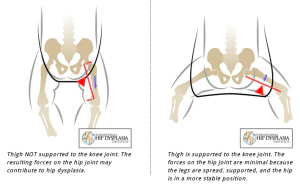Safe Food During Pregnancy

A lot of new mothers will tell you that one of the best gift you can bring when visiting a newborn baby is ready to eat homemade meals. This helps them to cope with the busy times as they adapt to their new parent duties: caring full time for a vulnerable, growing, baby human.
When I visit my friends in those circumstances I sometimes bring sushi, especially when I know that the mother has been craving it for the last 9 months! If you ever wonder why pregnant ladies need to refrain from eating this japanese raw fish delight, this blog post if for you!
Extra food safety precautions during pregnancy come from the concerns that certain bacterias and parasites can cause birth defects, miscarriage or severe illness or death in newborns. More specifically, Toxoplasmosis parasite, Listeria, E. coli, Salmonella and Vibrio are the concern. Pregnant women and unborn children are more sensitive to food borne illness and are therefore at higher risk of getting sick from parasites and bacterias present in food. If you are pregnant and think you have a foodborne illness or suffer from nausea and vomiting, diarrhea and fever, consult a doctor right away.
Here are important points to know and apply regarding food safety during pregnancy:
1. Avoid contact with cats and their excrements. Great news, your partner has to change the smelly cat litter!
2. Avoid raw meat, fish, unpasteurized dairy products and unpasteurized beverages (e.i. juices) as they are more likely to contain disease-causing bacteria, viruses or parasites. That being said, it’s time to cook meat like a pro. We recommend that pregnant women eat well cooked meat and fish. Most people associate well-cooked with rubber-like, tough texture. Great news, using a food thermometer is the best way to ensure that the food is cooked to a safe temperature while preserving the quality and avoiding over cooking. Because you can’t be sure if food is safely cook simply by looking at it, follow this table to learn about safe cooking temperatures!
As is it also not recommended to eat soft and unpasteurized cheeses. Focus on what you can eat and discover new pasteurized hard cheeses like Parmesan, Cheddar, Swiss, and Colby cheeses. If you really miss eating soft cheeses, make a baked brie and make sure it reaches safe internal temperature (74°C).
Breakfast is your favorite meal and you are disappointed not to be able to eat runny egg yolk and desserts made with raw eggs? Let’s be optimistic; there are so many ways you can cook eggs well and make it tasty! Think of well cooked scrambled eggs with herbs and spices, hard boiled eggs with cumin seeds, omelets, frittata and quiche!
If you are a big fan of sprouts, make sure that they are thoroughly washed and well cooked (alfalfa, bean, or any other sprout)! Refrigerated pâtés, meat spreads and smoked seafood, cold cuts and deli meats are not recommended during pregnancy.
3. Respect the cold food chain : At the grocery store, pick up refrigerated foods last, use a cooler bag and go directly home. If you use reusable bags for transport make sure they are clean. When cooking make sure to thaw all foods in the refrigerator (not on the counter) and refrigerate take-away food and leftovers within 2 hours.
4. Keep it clean ! Wash your hands regularly with soap and water for at least 20 seconds especially before and after preparing food. Fruits and vegetables have to be well washed. Remember to clean each lid before opening canned foods and beverages. Regularly clean your fridge, disinfect with bleach water and rinse well. Also make sure to read the “Best Before dates” on all foods before buying or using them.
5. Prevent from cross-contamination. In simple terms it means always separate raw meat, poultry, seafood, and eggs from other foods. Do so in your grocery cart, bags, and in the refrigerator. Surfaces that were in contact with raw meat, eggs or seafoods should be washed. Having two different cutting boards; one for raw foods and another one for ready-to-eat foods (bread, fruits and vegetables, cooked meat) is a good solution.
If your favorites foods are not recommended during pregnancy and you struggle with finding alternatives, consulting a dietitian can help ensure that your diet is balanced and enjoyable.

Jeanne Bédard
BSc, RD, HAAD
Head Dietician
Meet Jeanne here.
References:
https://www.foodsafety.gov/risk/pregnant/index.html https://www.canada.ca/en/health-canada/services/food-safety-vulnerable-populations/food-safety-pregnant-women.html





